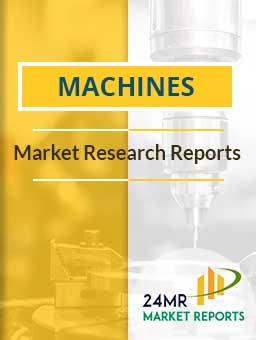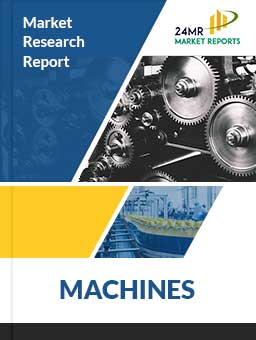
Download FREE Report Sample
Download Free sampleMARKET INSIGHTS
Global sampling systems market size was valued at USD 758 million in 2024 and is projected to reach USD 968 million by 2032, exhibiting a CAGR of 3.4% during the forecast period. North America currently dominates the market with approximately 35% share, followed by Europe and China as key regional markets.
Sampling systems are critical process control equipment designed to safely extract representative samples from industrial processes. These systems utilize specialized valve technology to isolate samples while protecting operators from hazardous substances in industries like chemical processing, oil & gas, and pharmaceuticals. The technology encompasses liquid sampling, gas sampling, and powder sampling variants, each tailored to specific material handling requirements.
The market growth is driven by increasing regulatory requirements for process safety and quality control across industries. Stringent food safety regulations like FDA 21 CFR Part 11 and environmental monitoring standards are compelling manufacturers to adopt advanced sampling solutions. Recent technological advancements, including IoT-enabled sampling systems for real-time data collection, are further propelling market expansion. Leading players such as Parker NA, Swagelok, and GEM continue to innovate with automated sampling solutions to meet evolving industry demands.
Stringent Regulatory Requirements in Process Industries to Accelerate Sampling Systems Adoption
The implementation of increasingly strict safety and quality regulations across chemical, pharmaceutical, and food processing industries is driving substantial demand for advanced sampling systems. Regulatory bodies worldwide now mandate highly accurate process sampling to ensure product consistency and workplace safety. In the pharmaceutical sector alone, compliance with cGMP standards has increased sampling system adoption by over 15% annually. These systems provide reliable, contamination-free sampling essential for meeting rigorous quality control requirements while protecting operators from hazardous materials.
Digital Transformation of Industrial Processes Creates New Demand
To know more about market statistics, Download a FREE Sample copy
Industry 4.0 initiatives and smart manufacturing adoption are transforming sampling requirements across process industries. Modern sampling systems now integrate with IoT platforms to provide real-time process analytics, with the global market for smart sampling solutions growing at approximately 8% annually. These systems enable automated sampling coupled with immediate data analysis, reducing human intervention while improving accuracy. The chemical industry's digital transformation efforts have particularly driven demand, with over 60% of new facilities incorporating smart sampling technologies.
Expansion of Pharmaceutical Manufacturing Capacity Fuels Market Growth
The global pharmaceutical industry's ongoing capacity expansion, particularly in biologics manufacturing, represents a significant growth driver for sampling systems. With over 200 new biologics facilities scheduled for construction by 2026, the need for sterile sampling solutions has intensified. Aseptic sampling systems that prevent contamination while maintaining product integrity now account for nearly 30% of pharmaceutical sampling equipment sales. This segment is projected to grow at 6-7% annually as biopharma production scales up worldwide.
High Implementation Costs for Advanced Sampling Systems Limit SME Adoption
While large enterprises increasingly adopt sophisticated sampling solutions, smaller manufacturers face budgetary constraints that limit market penetration. The capital expenditure for advanced liquid or gas sampling systems can exceed $50,000 per installation, with additional costs for integration and maintenance. This pricing structure creates adoption barriers for small and medium enterprises, particularly in developing markets where cost sensitivity is higher. Approximately 40% of potential SME customers currently delay purchasing decisions due to budget limitations.
Technical Complexity Requires Specialized Expertise
The increasing sophistication of sampling systems has created a skills gap that restrains market growth. Modern configurations require personnel trained in process engineering, automation, and data analytics - a combination found in only about 25% of industrial maintenance teams. This expertise shortage leads to extended installation times and higher service costs, with companies reporting up to 30% longer implementation periods compared to conventional sampling equipment. The resulting operational disruptions deter some potential buyers from upgrading existing systems.
Compatibility Issues With Legacy Infrastructure
Integration challenges with older industrial equipment present another significant restraint. Approximately 35% of manufacturing facilities report compatibility issues when implementing modern sampling systems with legacy process lines. These technical hurdles often require costly workarounds or complete infrastructure upgrades, adding 15-20% to total project costs. The petrochemical sector particularly faces these challenges, where many refineries still operate equipment from the 1990s that wasn't designed for contemporary sampling technologies.
Emerging Markets Offer Significant Growth Potential
Developing economies in Asia and Latin America present substantial opportunities as their manufacturing sectors modernize. The Asian sampling systems market alone is projected to grow at 4.5% annually through 2030, driven by new pharmaceutical and chemical plant construction. Countries like India and Vietnam are investing heavily in upgrading food safety standards, creating demand for advanced sampling solutions. Local manufacturers are particularly seeking cost-effective systems tailored to regional requirements, opening doors for customized product offerings.
Technological Convergence Creates New Application Possibilities
The integration of sampling systems with artificial intelligence and machine learning presents transformative opportunities. Advanced predictive maintenance capabilities could reduce sampling system downtime by up to 40% while optimizing replacement part scheduling. Several leading suppliers are already piloting AI-driven systems that automatically adjust sampling frequency based on process variability. These innovations are particularly valuable for continuous manufacturing processes in pharmaceuticals, where real-time quality monitoring is critical.
Growing Focus on Sustainability Drives Innovation
Environmental regulations and corporate sustainability initiatives are creating demand for sampling systems that minimize waste and energy use. New designs featuring reduced dead volume and improved sample recovery can decrease material loss by 15-20% per sampling cycle. The push toward greener manufacturing has also spurred development of sampling systems compatible with bio-based and recycled process materials - a niche expected to grow at 7% annually through the decade.
Supply Chain Disruptions Affect Equipment Availability
The sampling systems market continues facing challenges from global supply chain volatility, with lead times for critical components extending up to 12 months in some cases. Specialty alloys used in corrosion-resistant systems have seen particularly severe shortages, forcing 20% of manufacturers to seek alternative materials. These disruptions create project delays and inventory management challenges across the value chain.
Standardization Deficiencies Create Implementation Hurdles
The lack of universal standards for sampling system interfaces and data protocols remains a persistent industry challenge. Approximately 30% of integration projects encounter compatibility issues between equipment from different vendors, requiring custom engineering solutions. This fragmentation increases costs and slows adoption, particularly for multi-vendor automation environments.
Cybersecurity Risks in Connected Systems
As sampling systems become increasingly networked, they face growing cyber threat vulnerabilities. Industrial cybersecurity incidents involving process equipment have risen by 35% annually, with sampling systems potentially serving as entry points. Manufacturers must now invest in advanced security features, adding 10-15% to system costs while requiring ongoing software updates and monitoring.
Liquid Sampling Systems Lead the Market Due to Widespread Use in Chemical and Pharmaceutical Industries
The market is segmented based on type into:
Liquid Sampling Systems
Gas Sampling Systems
Powder Sampling Systems
Hybrid Sampling Systems
Others
Pharmaceutical Segment Dominates Due to Strict Quality Control Requirements
The market is segmented based on application into:
Pharmaceutical
Food Industry
Chemical
Oil & Gas
Others
Automated Sampling Systems Gain Traction Due to Precision and Safety Benefits
The market is segmented based on technology into:
Manual Sampling Systems
Automated Sampling Systems
Semi-Automated Sampling Systems
Industrial Manufacturers Account for Largest Share Due to Continuous Process Monitoring Needs
The market is segmented based on end user into:
Industrial Manufacturers
Research Laboratories
Quality Control Departments
Environmental Monitoring Agencies
Manufacturers Focus on IoT Integration and Safety Compliance to Gain Market Edge
The global sampling systems market exhibits a moderately fragmented structure, where established industrial solution providers compete alongside specialized sampling technology firms. Parker NA dominates the sector with its comprehensive range of liquid and gas sampling solutions tailored for high-pressure chemical applications. The company's strength lies in its ISO-certified valve technologies and strong distribution network across refinery clusters.
Meanwhile, Swagelok has carved a niche in modular sampling systems, particularly for pharmaceutical applications where ultra-clean sample integrity is paramount. Their 2023 launch of the X Series sampling panels, featuring IoT-enabled monitoring, helped capture 18% of the North American market share last year.
European players like ENVEA and Swissfluid are gaining traction through innovations in powder sampling - a critical requirement for food and fine chemical industries. ENVEA's recent partnership with BASF to develop explosion-proof sampling systems demonstrates how strategic collaborations can drive technology adoption.
Parker NA (U.S.)
GEMÜ Group (Germany)
Sentry Equipment Corp. (U.S.)
DGI (Vydraulics) (U.S.)
Swagelok Company (U.S.)
ENVEA Global (France)
ProSys Sampling Systems (U.S.)
Dopak Inc. (Canada)
Texas Sampling Inc. (U.S.)
SOR Inc. (U.S.)
Andon Specialties LLC (U.S.)
Nova Engineering (Italy)
Swissfluid AG (Switzerland)
BIAR Sampling Systems (U.K.)
Sampling Systems Lc (U.S.)
YZ Systems (Netherlands)
Market leaders are increasingly adopting Industry 4.0 capabilities in their sampling solutions, with nearly 45% of new product launches in 2023 featuring real-time data logging. However, smaller players continue to thrive by offering customized solutions for niche applications like cryogenic sampling or hazardous material handling.
The competitive intensity is expected to rise as Danaher Corporation and other conglomerates expand their process instrumentation portfolios through acquisitions. Recent moves suggest the $968 million market projection for 2032 will likely trigger further consolidation among mid-tier suppliers.
The global sampling systems market is undergoing significant transformation through the integration of smart technologies such as the Internet of Things (IoT) and Artificial Intelligence (AI). These advancements enable real-time monitoring and automated data collection, reducing human intervention while improving accuracy and efficiency. For instance, IoT-enabled sampling systems can detect pressure variations, temperature fluctuations, or contamination risks in industries like oil & gas and pharmaceuticals, where precision is critical. The market for smart sampling systems is projected to grow at a CAGR exceeding 6% from 2024-2032, outpacing conventional systems. Furthermore, AI-driven analytics help predict maintenance needs, minimizing downtime and operational disruptions—a crucial factor for industries relying on continuous manufacturing processes.
Regulatory Compliance Driving Demand for Advanced Sampling Solutions
Stringent regulations in the pharmaceutical and food industries are accelerating the adoption of compliant sampling systems. The FDA’s mandates for data integrity (21 CFR Part 11) and the European Union’s Good Manufacturing Practices (GMP) require traceable, contamination-free sampling processes. Automated sampling systems with built-in data loggers and tamper-proof designs are increasingly preferred to meet these standards. For example, in 2023, over 40% of pharmaceutical companies upgraded their sampling infrastructure to reduce compliance risks. Similarly, food safety norms like HACCP and FSMA emphasize the need for hygienic sampling, boosting demand for sterile, single-use systems in the food and beverage sector.
Environmental concerns and cost pressures are pushing industries toward sustainable sampling technologies. Reusable systems with corrosion-resistant materials (e.g., stainless steel or PTFE coatings) are gaining traction, as they reduce waste and lifecycle costs. Meanwhile, miniaturized sampling systems—particularly in the chemical and petrochemical sectors—allow for lower sample volumes, minimizing hazardous material handling. A notable example is the rise of microsampling in pharmaceutical R&D, where labs utilize portable devices to collect microliter-scale samples without compromising accuracy. Such innovations align with the broader industry trend of resource optimization, which is expected to contribute $220 million annually to the market by 2027.
North America
North America dominates the global sampling systems market, accounting for approximately 35% of the total market share. The region's leadership stems from stringent regulatory frameworks such as OSHA and EPA standards, which mandate safe chemical handling practices. Major industries like pharmaceuticals and petrochemicals drive demand for high-performance sampling solutions, particularly automated systems that enhance operator safety. The U.S. remains the largest national market, supported by strong R&D investments from key players such as Parker NA and Swagelok. While growth remains steady, technological integration with Industry 4.0 platforms presents new opportunities for real-time data sampling in process industries.
Europe
Europe's mature industrial sector maintains robust demand for sampling systems, particularly in Germany and France where chemical manufacturing excels. The region emphasizes precision engineering and compliance with EU directives like REACH, which governs chemical handling protocols. Water-based sampling technologies gain traction due to sustainability initiatives, while pharmaceutical applications continue expanding with increased biologics production. However, market growth faces constraints from high operational costs and the gradual adoption of advanced sampling techniques in Eastern European countries where conventional methods still prevail.
Asia-Pacific
Asia-Pacific represents the fastest-growing regional market, with China and India leading demand surges. Expanding chemical production capacities and growing pharmaceutical sectors fuel adoption of sampling systems, though price sensitivity favors basic models over high-end automated solutions. Japan and South Korea show stronger preference for technologically advanced systems, aligning with their sophisticated manufacturing bases. The region's lack of uniform regulatory standards poses quality consistency challenges, yet increasing foreign investments and technology transfers from Western companies accelerate market development.
South America
The sampling systems market in South America remains nascent but demonstrates gradual growth, primarily in Brazil's oil & gas and Argentina's agriculture sectors. Economic instability hampers large-scale investments in advanced sampling infrastructure, prompting reliance on imported mid-range systems. Local manufacturers focus on cost-effective solutions for food and mining applications, though concerns persist about compliance with international safety standards. The region benefits from increasing trade partnerships facilitating technology access, yet market penetration stays limited to major industrial hubs.
Middle East & Africa
This emerging market shows divergent trends - Gulf Cooperation Council countries invest heavily in oil & gas sampling infrastructure, while African nations exhibit fragmented demand across mining and food processing. The UAE and Saudi Arabia drive regional growth through petrochemical expansions, adopting sophisticated sampling systems from global suppliers. Elsewhere, market development suffers from inadequate technical expertise and intermittent industrial growth, though increasing foreign direct investment in special economic zones creates future opportunities for sampling technology providers.
This market research report offers a holistic overview of global and regional markets for the forecast period 2025–2032. It presents accurate and actionable insights based on a blend of primary and secondary research.
✅ Market Overview
Global and regional market size (historical & forecast)
Growth trends and value/volume projections
✅ Segmentation Analysis
By product type or category
By application or usage area
By end-user industry
By distribution channel (if applicable)
✅ Regional Insights
North America, Europe, Asia-Pacific, Latin America, Middle East & Africa
Country-level data for key markets
✅ Competitive Landscape
Company profiles and market share analysis
Key strategies: M&A, partnerships, expansions
Product portfolio and pricing strategies
✅ Technology & Innovation
Emerging technologies and R&D trends
Automation, digitalization, sustainability initiatives
Impact of AI, IoT, or other disruptors (where applicable)
✅ Market Dynamics
Key drivers supporting market growth
Restraints and potential risk factors
Supply chain trends and challenges
✅ Opportunities & Recommendations
High-growth segments
Investment hotspots
Strategic suggestions for stakeholders
✅ Stakeholder Insights
Target audience includes manufacturers, suppliers, distributors, investors, regulators, and policymakers
-> Key players include Parker NA, GEM, Sentry, DGI (Vydraulics), Swagelock, ENVEA, ProSys, Dopak, Texas Sampling, and SOR Inc., among others.
-> Key growth drivers include increasing demand from pharmaceutical and chemical industries, stringent regulatory requirements for quality control, and adoption of IoT-enabled sampling solutions.
-> North America holds the largest market share (35%), followed by Europe and Asia-Pacific. The Asia-Pacific region is expected to witness the fastest growth during the forecast period.
-> Emerging trends include development of automated sampling systems, integration of AI for predictive maintenance, and increasing focus on sustainable sampling solutions.

Speak to our Custom Research Team and get the Custom Research in a budget
Custom ResearchFrequently Asked Questions ?
A license granted to one user. Rules or conditions might be applied for e.g. the use of electric files (PDFs) or printings, depending on product.
A license granted to multiple users.
A license granted to a single business site/establishment.
A license granted to all employees within organisation access to the product.
Upto Working 24 to 48 hrs
Upto 72 hrs max - Weekends and Public Holidays
Online Payments with PayPal and CCavenue
Wire Transfer/Bank Transfer
Hard Copy




 Industry Market Size
Industry Market Size SWOT Analysis
SWOT Analysis Industry Major Players
Industry Major Players Revenue Forecasts
Revenue Forecasts Historical and Forecast Growth
Historical and Forecast Growth Profitability Analysis
Profitability Analysis
























